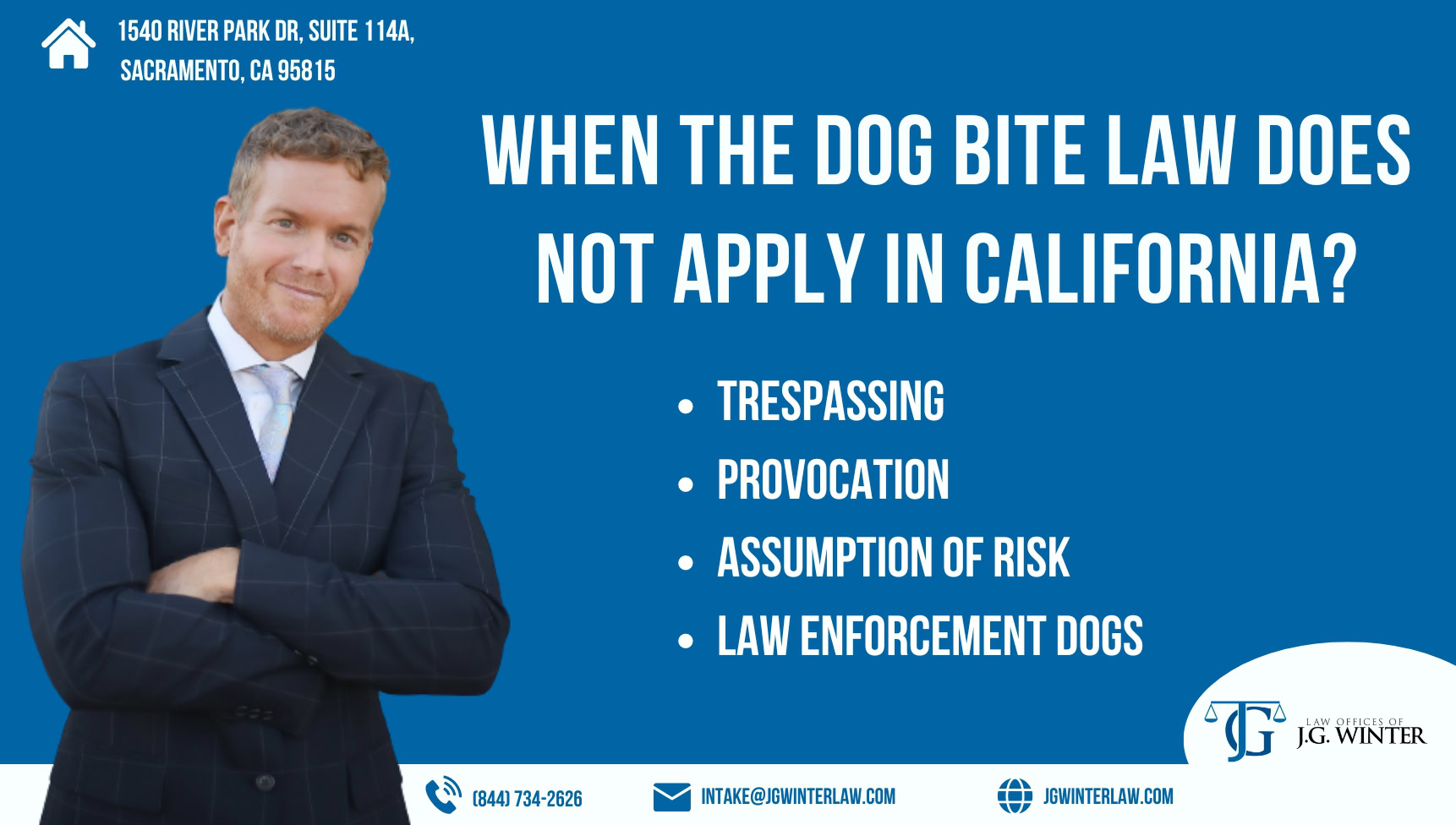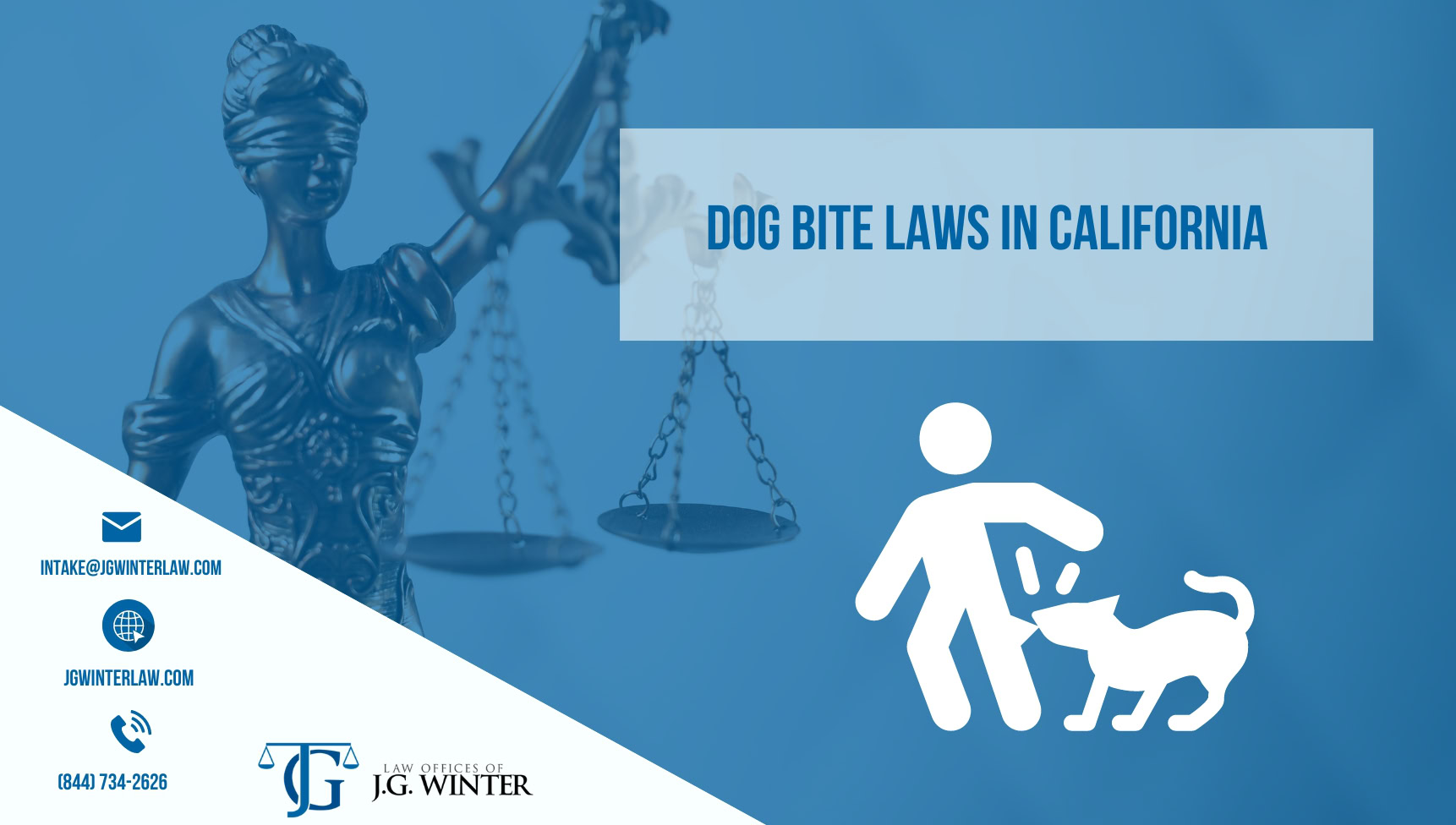Understanding dog bite laws in California is crucial for anyone, whether you’re a dog owner or someone who interacts with dogs. These laws outline the responsibilities and consequences when a dog bite occurs. California dog bite laws safeguard the rights and well-being of individuals and pets. They ensure dog bite victims can seek justice and compensation while also emphasizing the accountability of dog owners for their pets’ actions.
In this article, you’ll understand California’s dog bite laws, how to determine liabilities in dog bite claims, things to do if a dog bites you in California and more.
Understanding California’s dog bite laws
California’s dog bite law, found in Civil Code Section 3342, protects people from injuries caused by dog bites. The law states that dog owners are responsible for damages if their dog bites someone in a public place or lawfully in a private place, including the dog owner’s property. California dog bite laws include the “strict liability” rule which holds the owner liable for injuries without needing to prove negligence or fault. It ensures you receive compensation for your injuries.
Dangerous and vicious dogs
California law provides specific definitions and regulations for dogs deemed “dangerous” or “vicious.” Owners of such dogs may face more stringent requirements, such as mandatory registration, special confinement, or even euthanasia in extreme cases.
Leash laws
Many cities and counties in California have leash laws that require dogs to be on a leash in public spaces. These laws prevent incidents, including bites, by keeping dogs under control and close to their owners.
Civil Code Section 3342
Civil Code Section 3342 is the primary statute governing dog bites in California. It outlines the liability of dog owners for damages resulting from their dog biting someone, emphasizing the protection of public safety.
No “One Bite Rule”
California does not follow the “one bite rule,” which exempts the owner from liability if the dog has never bitten anyone before. In California, owners are liable for the first bite, encouraging responsible pet ownership and reducing the risk of injury.
Exceptions to strict liability
There are exceptions where the dog owner may not be liable for a bite. For example, if the victim was trespassing without permission, provoking the dog, or knowingly took the risk of being bitten.
Liability in dog bite claims? Understanding owner responsibilities
In California, dog owners have clear responsibilities to prevent their pets from causing harm. The state’s dog bite statute usually holds them liable when their dog bites someone, whether the incident occurs in public or on the owner’s property. However, there are a few exceptions. For instance, the owner might not be held responsible if the victim was trespassing, provoking the dog, or knowingly took a risk by interacting with a known dangerous dog. These laws emphasize the importance of responsible pet ownership, including dog training and securing, to minimize the risk of bites and ensure public safety.
When the dog bite law does not apply in California?

Trespassing
If a person is bitten while unlawfully on private property, the owner may not be held liable under the dog bite statute. The law protects property owners from liability when their dog bites someone with no legal right to be on the property.
Provocation
If an individual provokes the dog into biting, the owner might not be held liable. Provocation can include aggressive behaviors, such as hitting or teasing the dog, that would cause a reasonable dog to react defensively.
Assumption of risk
Individuals who knowingly put themselves in a situation where a dog bite could occur, such as veterinarians, dog groomers, or dog trainers, may have assumed the risk of being bitten. It can limit the owner’s liability.
Law enforcement dogs
Dogs working with law enforcement are exempt from the strict liability statute if they bite during official duties and the dog is defending itself or assisting in law enforcement activities.
Determining liability in dog bite claims in California
Determining liability in dog bite claims in California is primarily guided by the principle of strict liability. The dog owner is often held responsible regardless of the dog’s past behavior.
Below are listed several factors that can influence liability determination.
- Strict liability under civil code 3342: It holds dog owners liable for damages if their dog bites someone, regardless of the dog’s previous aggression or the owner’s knowledge of such aggression. The bite must occur in a public place or while the victim is lawfully on private property.
- Negligence: Liability can also stem from an owner’s negligence. If owners fail to take reasonable steps to prevent the bite, such as not securing their dog in a yard or keeping it on a leash in public areas, they can be found negligent.
- Landlord liability: In some cases, a landlord can be liable for a tenant’s dog if the landlord knew the dog was dangerous but failed to take action to remove the dog from the property.
Compensation and damages in dog bite claims
In dog bite cases in California, compensation aims to cover the victim’s losses resulting from the injury. The damages calculation can include several types of compensation, depending on the scase’s specifics: Economical, non-economical and punitive Damages.
Economical damages
Economical damages cover financial losses directly related to the injury. It may include medical expenses for treating the injury, lost wages if the victim had to take time off work, and any future medical care or lost earning capacity due to the injury. These damages are quantifiable and based on actual financial losses incurred by the victim.
Non-economical damages
Non-economic damages compensate for non-financial losses, such as pain and suffering, emotional distress, loss of enjoyment of life, and sometimes disfigurement or loss of consortium. These damages are more subjective and are assessed based on the severity of your suffering and how the injury impacts your quality of life.
Punitive damages
Although less common, punitive damages may be awarded in cases where the dog owner’s behavior was particularly reckless or egregious. These damages are intended to punish the defendant and deter similar conduct in the future. Punitive damages are not directly tied to your financial losses but the severity of the defendant’s misconduct.
Understanding the potential damages recoverable in a dog bite claim is crucial to seeking compensation. You must consult with a dog bite lawyer to navigate the claim process and pursue all potential damages.
What to do if a dog bites you in California?
Taking immediate and appropriate actions is crucial for your health, legal rights, and potential compensation claim. Therefore, follow the steps given below if you are wondering what to do after a dog bite in California:
- Seek medical attention: Prioritize your health by seeking medical care, even for seemingly minor injuries. Dog bites can lead to infections or more serious complications.
- Report the incident: Notify the police about the dog bite. It creates an official incident record, which can be vital for a legal claim.
- Document everything: Take photos of your injuries, the location where the incident occurred, and, if possible, the dog involved. Collect contact information from witnesses and the dog’s owner.
- Keep records of medical treatment: Save all medical records and receipts related to the treatment of your injuries. It includes hospital visits, medications, and any follow-up care.
Avoid negotiating with the dog owner: Don’t discuss compensation or admit fault with the dog’s owner. Statements made could impact your claim’s outcome. - Consult with a personal injury attorney: An experienced dog bite injury lawyer can guide you through the legal process, help establish liability, and ensure you receive fair compensation for your injuries.
Contact our California personal injury lawyer today to secure the compensation you deserve after a dog bite incident.
J.G Winter Law for dog bite lawyers in California
Understanding dog bite laws in California is crucial for anyone who has suffered a dog bite or for dog owners who want to know their responsibilities and potential liabilities. These laws protect you from harm and ensure you can seek compensation for your injuries.
Navigating the legal aspects of a dog bite case can be complex, involving specific statutes, liability rules, and potential compensation for damages. J.G. Winter Law can guide you toward navigating the complexities of your case. Our dedicated California dog bite attorneys help you protect your rights and receive the compensation you deserve. Contact us for guidance and support with your dog bite claim in California.
FAQs on dog bite laws in California
Can you sue for a minor dog bite in California?
Yes, you can sue for a minor dog bite in California. Victims can seek compensation for all types of injuries, regardless of severity.
What is the law on aggressive dogs in California?
California law allows local authorities to take action against aggressive dogs, which can include imposing specific control measures or ordering the dog’s euthanasia in severe cases.
How many times can a dog bite before being put down in California?
There’s no specific number of bites that mandate euthanasia. Decisions are based on the circumstances of each case, including the severity of the bites and the dog’s history.
Does California have a one bite rule?
California does not have a “one bite” rule. The state imposes strict liability on dog owners for bites, regardless of the dog’s previous behavior.
What is a Level 3 dog bite?
A Level 3 dog bite involves one or more shallow bite marks on the skin, with at least one puncture wound from to the dog’s teeth.
How much compensation for dog bite in California?
Compensation varies widely depending on the specifics of each case, including the severity of injuries and the impact on the victim’s life. Settlements can cover medical expenses, lost wages, pain and suffering, and more.


